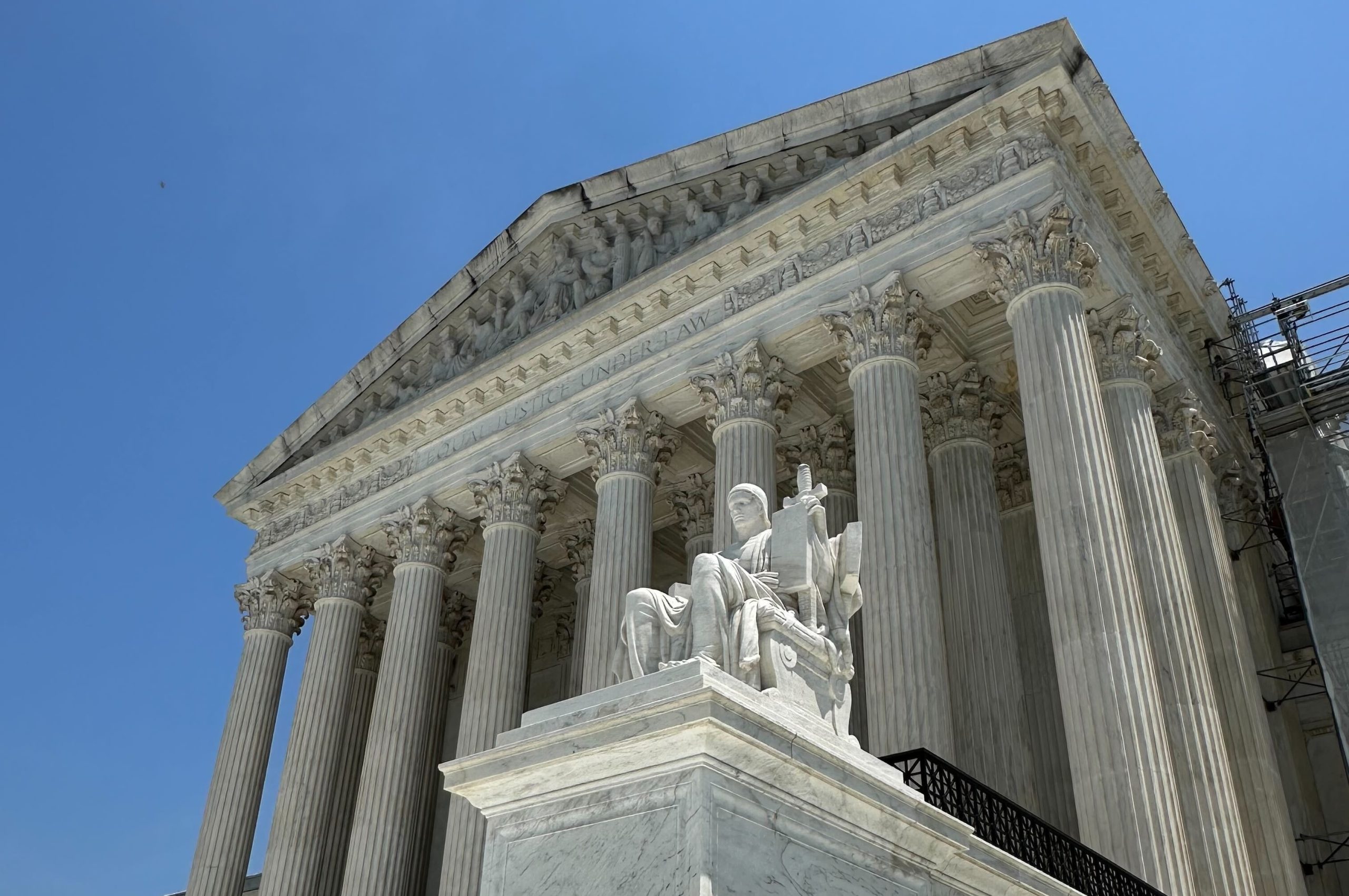Section 8 vouchers take center stage in dispute between landlord and disabled tenant
Petitions of the week
on Sep 29, 2023
at 5:55 pm
The Petitions of the Week column highlights a selection of cert petitions recently filed in the Supreme Court. A list of all petitions we’re watching is available here.
Federal law bars housing discrimination against a person with a disability. Under the Fair Housing Act, landlords and sellers must provide “reasonable accommodations” to give someone with a disability “equal opportunity” to rent or buy a home. This week, we highlight petitions that ask the court to consider, among other things, whether the FHA requires landlords to accept so-called Section 8 vouchers from tenants who are too disabled to work.
Suellen Klossner is a resident of Table Mound Mobile Home Park in Dubuque, Iowa. She suffers from physical and psychiatric disabilities and receives her sole income in the form of benefits from the government. In 2017, the park was purchased by IADU Table Mound MHP, a subsidiary of one of the largest mobile-home park owners in the country. Over the next two years, IADU consistently hiked the monthly rent that Klossner paid for her lot in the park. It also began charging Table Mound residents separately for utilities such as water, sewer, and trash collection, so that by 2019 Klossner’s rent and utilities were more than half of her monthly income.
Due to the rising costs, Klossner applied for and began receiving housing-choice vouchers from a program, funded by the Department of Housing and Urban Development and administered by local authorities, that provides rental assistance for low-income tenants. Participants in the program, known as Section 8, pay 30% of their income toward rent and utilities; the local housing authority pays the rest directly to the landlord. In Iowa, landlords are not required to accept Section 8 vouchers. When Klossner sought to use them to pay her rent, IADU refused, on the ground that accepting vouchers from Table Mound residents would create an administrative burden.
Klossner then asked IADU to accept her vouchers as a reasonable accommodation under the FHA. Explaining that she cannot work because of her disabilities, Klossner argued that she is unable to earn additional income to pay her housing bills and thus needs Section 8 vouchers to have equal opportunity to live in Table Mound.
When IADU denied that request as well, Klossner went to federal court, arguing that IADU’s refusal to accept her Section 8 vouchers violated the FHA by discriminating against her due to a disability. A federal district court in Iowa agreed that IADU had violated the FHA and ordered IADU to begin accepting her housing vouchers.
The U.S. Court of Appeals for the 8th Circuit reversed. The appeals court reasoned that the FHA only requires landlords to accommodate the physical effects of a disability – for example, an exception to a no-pets policy for a blind person who needs a service dog. The law does not, the 8th Circuit held, compel landlords to make reasonable accommodations for the economic effects of a disability, as in Klossner’s case
In Klossner v. IADU Table Mound MHP, LLC, Klossner asks the justices to grant review and reverse the 8th Circuit’s ruling. She argues that lower courts are divided on whether the FHA’s requirement of reasonable accommodations requires landlords to accept alternative methods of payment from someone who cannot work due to a disability. The 8th Circuit’s distinction “between ‘physical’ and ‘economic’ effects of a disability,” Klossner writes, “is nowhere to be found in the Fair Housing Act.”
A list of this week’s featured petitions is below:
Klossner v. IADU Table Mound MHP, LLC
23-134
Issue: Whether an “accommodation” to afford people with disabilities “equal opportunity to use and enjoy a dwelling” under the Fair Housing Act can include the relaxation of a policy of refusing to accept rent from alternative sources, where the tenant is too disabled to work.
Simpson v. Thurston
23-138
Issues: (1) Whether the district court erred in finding that the plaintiffs failed to allege facts that state a claim under the equal protection clause of the 14th Amendment, the 15th Amendment, or Section 2 of the Voting Rights Act; (2) whether, under Section 2, the district court erred in requiring that the plaintiffs allege facts that created a plausible inference that the intent, rather than the effect, of the Arkansas General Assembly’s redistricting legislation was necessary to be pled in order to state a claim; and (3) whether plaintiffs, in a case solely challenging the “cracking” of Black voters from a larger Black community in their historic congressional district into two other districts, thereby diluting the voting strength of that Black community, must allege and prove the three prongs of this court’s decision in Thornburg v. Gingles.
Connelly v. Internal Revenue Service
23-146
Issue: Whether the proceeds of a life-insurance policy taken out by a closely held corporation on a shareholder in order to facilitate the redemption of the shareholder’s stock should be considered a corporate asset when calculating the value of the shareholder’s shares for purposes of the federal estate tax.
Speech First, Inc. v. Sands
23-156
Issue: Whether university bias-response teams — official entities that solicit, track, and investigate reports of bias; ask to meet with perpetrators; and threaten to refer students for formal discipline — objectively chill students’ speech in violation of the First Amendment.
Hamm v. Smith
23-167
Issues: (1) Whether Hall v. Florida and Moore v. Texas mandate that courts deem the standard of “significantly subaverage intellectual functioning” for determining intellectual disability in Atkins v. Virginia satisfied when an offender’s lowest IQ score, decreased by one standard error of measurement, is 70 or below; and (2) whether the court should overrule Hall and Moore, or at least clarify that they permit courts to consider multiple IQ scores and the probability that an offender’s IQ does not fall at the bottom of the lowest IQ score’s error range.
American Petroleum Institute v. Minnesota
23-168
Issue: Whether a federal district court has removal jurisdiction under 28 U.S.C. 1331 and 28 U.S.C. 1441 over putative state-law claims seeking redress for injuries allegedly caused by the effect of interstate greenhouse-gas emissions on the global climate.





